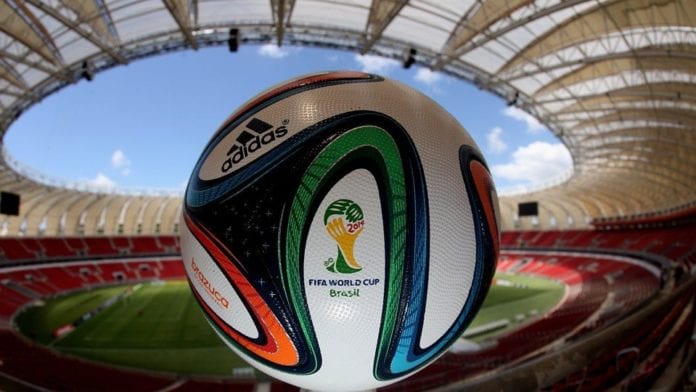Before the FIFA World Cup began, Brazilian telecom union SindiTelebrasil said that the operators’ networks were ready to handle the increased data and voice traffic, and during the first week of the tournament the wireless performance was closely watched.
During the first games in each of the 12 arenas that hosted the World Cup tournament, about one million cell phone connections and 7.6 million data sessions, including sending e-mails, images and multimedia messages, were made, according to SindiTelebrasil. The largest volume of data traffic was concentrated in 3G technology. The traffic was measured over a seven-hour period starting three hours prior to the start of the games and ending two hours after the games finished.
In general, data traffic peaked just before the start of the game and remained at high levels until the beginning of the second half. In this seven-hour period, 3.9 million data connection were made over 3G technology, while 1.1 million used a 4G connection. The traffic on Wi-Fi networks was equivalent to 2.6 million data communications.
The largest volume of voice calls occurred before the events while the use of data was higher early in the games, which is typical of user behavior at large events.
In stadiums where providers installed free Wi-Fi services, there was a migration of voice traffic to instant messaging applications, such as WhatsApp.
Nextel’s LTE Launch: NII Holdings’ Nextel brand launched LTE services in Rio de Janeiro on June 16, just a few days after the beginning of the World Cup. Nextel’s LTE network uses its 1.8 GHz spectrum holdings, with the carrier installing 300 radio base stations from Huawei covering 19 neighborhoods in the city. Nextel said it is focusing on high-end costumers who are willing to pay more than $45 per month for service.
In May, NII Holdings reported a net loss of 52,000 subscribers for the first quarter of 2014. The company also reported $970 million in revenue, a 27% decrease compared to the first quarter of 2013. NII Holdings’ CEO Steve Shindler said in a statement that the goal for 2014 is to drive better operational and financial results by stabilizing operations in Mexico and investing in subscriber growth in Brazil.
Virgin kicks off in Mexico: Running on Telefónica’s networks, Virgin Mobile launched its Mexican operations as a mobile virtual network operator, bringing its Latin America footprint to three markets. Currently, América Móvil’s Telcel dominates the Mexican market with 70% market share, followed by Movistar with 19%, Iusacell with 8% and Nextel with 3%.
More Latin American news:
- Colombia ended the first quarter of 2014 with 8.8 million broadband connections, four-times more than in 2010 when the country had 2.2 million connections. According to the government, the advent of 4G services drove a 262% increase in mobile subscribers over the last three months. Currently, there are approximately 215,000 4G subscribers.
- The lack of telecom regulation in Mexico is delaying capital expenditures in the sector this year, according to the National Chamber of Industry of Electronics, Telecommunications and Information Technology. As posted by Convergencia Latina, the organization projects that the delayed expenditures total between $5.2 billion and $5.4 billion.
- Spain-based Telefónica announced the beta launch of Tuenti, an MVNO in Mexico targeting young users and focusing on data traffic.
- Oi and Portugal Telecom inaugurated their first showroom for ICT solutions for the corporate market developed by both telecom operators. The partnership is looking to give potential customers the experience of using these solutions in their day-to-day operations.
- Telefónica signed a deal with SABMiller to provide its regional telecommunications network in Latin America.
- Costa Rican regulator Superintendencia de Telecomunicaciones (Sutel) announced that it will hold a public consultation about the possible introduction of a flat rate for mobile Internet services for both prepaid and postpaid customers based on the amount of data transferred, according to the local news outlet El Financiero.
- American Tower announced plans to acquire Brazil’s BR Towers for just under $1 billion. The deal will add roughly 4,600 towers to the 7,200 towers it already has in the country.
Wondering what’s going on in Latin America? Why don’t you follow me on Twitter? Also check out all of RCR Wireless News’ Latin American content.
(picture: Fifa.com)

